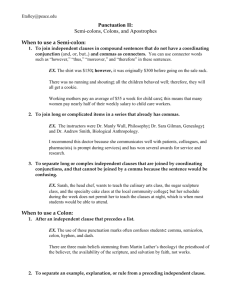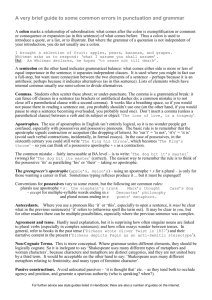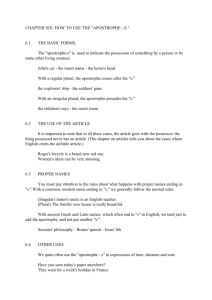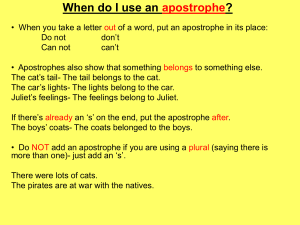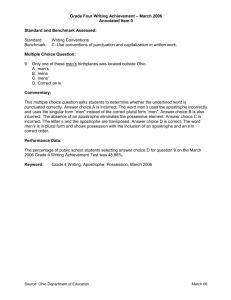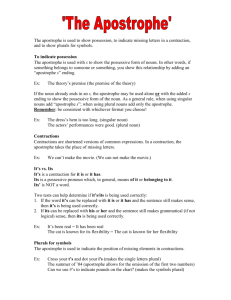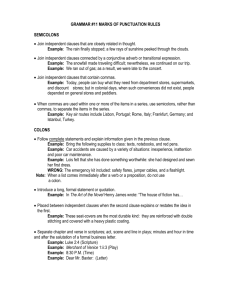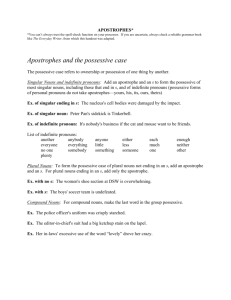Possessive Apostrophes:
advertisement
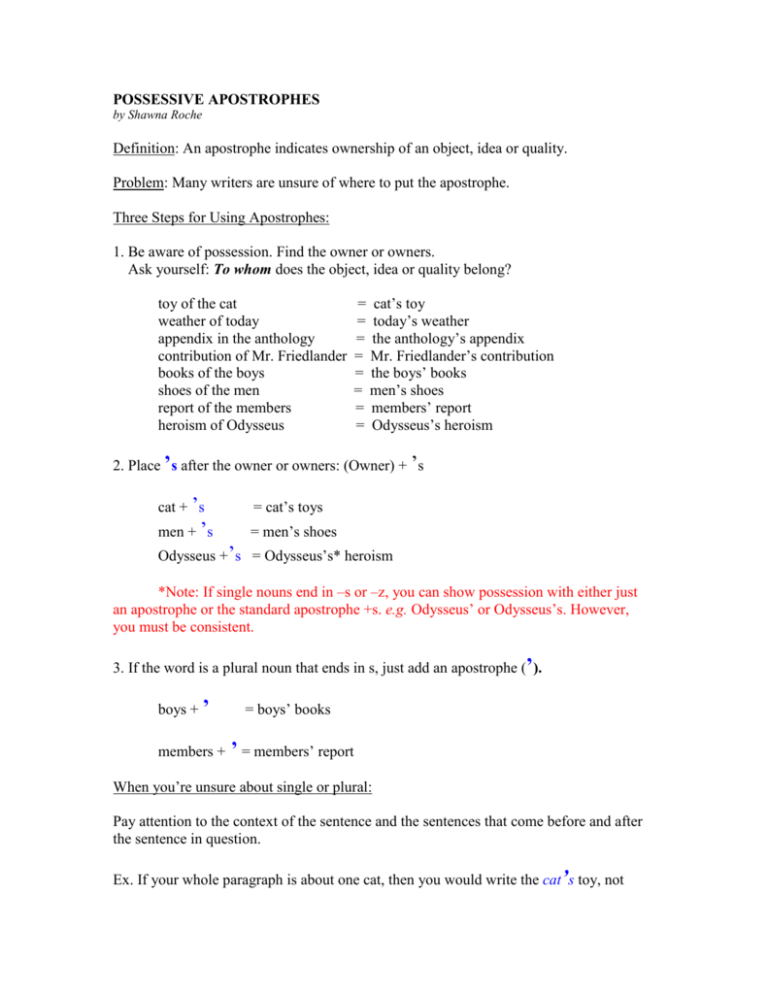
POSSESSIVE APOSTROPHES by Shawna Roche Definition: An apostrophe indicates ownership of an object, idea or quality. Problem: Many writers are unsure of where to put the apostrophe. Three Steps for Using Apostrophes: 1. Be aware of possession. Find the owner or owners. Ask yourself: To whom does the object, idea or quality belong? toy of the cat weather of today appendix in the anthology contribution of Mr. Friedlander books of the boys shoes of the men report of the members heroism of Odysseus = cat’s toy = today’s weather = the anthology’s appendix = Mr. Friedlander’s contribution = the boys’ books = men’s shoes = members’ report = Odysseus’s heroism 2. Place ’s after the owner or owners: (Owner) + ’s cat + ’s = cat’s toys men + ’s = men’s shoes Odysseus +’s = Odysseus’s* heroism *Note: If single nouns end in –s or –z, you can show possession with either just an apostrophe or the standard apostrophe +s. e.g. Odysseus’ or Odysseus’s. However, you must be consistent. 3. If the word is a plural noun that ends in s, just add an apostrophe (’). boys + ’ members + = boys’ books ’ = members’ report When you’re unsure about single or plural: Pay attention to the context of the sentence and the sentences that come before and after the sentence in question. Ex. If your whole paragraph is about one cat, then you would write the cat’s toy, not the cats’ toy. Cats’ refers to more than one cat. Two Basic Rules for Using Apostrophes: 1. Add ’s to the noun (owner) The child’s balloon floated to the ceiling when he let go of it. The children’s books are over there on the shelf. 2. Add only the apostrophe (’) to a plural noun that ends in s. The dogs’ leashes were put back in the drawer. Special Cases: 1. If two or more people share ownership, only the last owner has an apostrophe +s. Bob and Nancy’s house. 2. If the two nouns possess separate things, then they each take an apostrophe +s: We'll go in Sam’s and Matt’s cars to the movies. 3. In hyphenated words, only the last word takes an apostrophe +s: My sister-in-law’s dress is still in my closet. 4. With indefinite pronouns (everyone, anyone, everybody, one etc.) add ’s. This is nobody’s business but mine. Note: You never form the plural of these indefinite pronouns, because they are always singular. The only reason you would ever add an s would be with an apostrophe to make them possessive. 5. **Trap- Possessive Pronouns**: mine, yours, his, hers, its, ours, yours, theirs Possessive pronouns are words that are already in possessive form, such as mine, yours, his, hers, its, ours, yours, theirs. They do not require any apostrophes because they are already possessive. Don't fall into the temptation of adding an apostrophe to yours, hers, ours, its or theirs. Just remember his. Are you ever tempted to add an apostrophe to his? No! It wouldn’t make sense! It is the same for hers, ours, etc..

